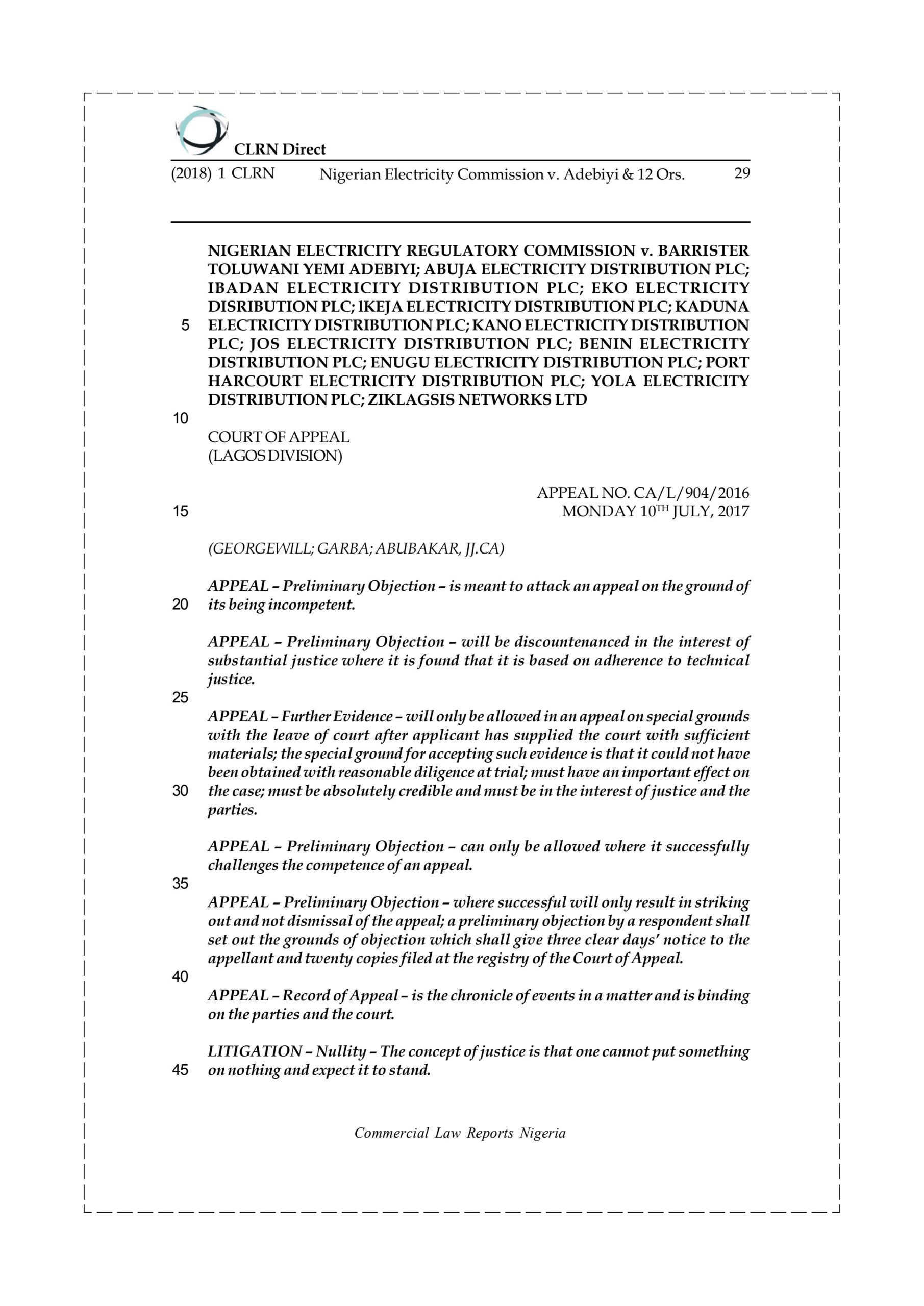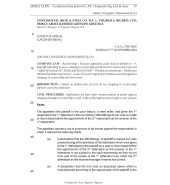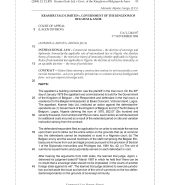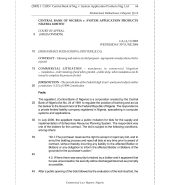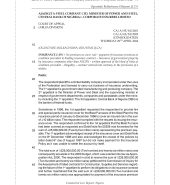-

Fortune Int’l Bank Plc v. Pegasus Trading Office & 2 Ors
- kg
1 × ₦300
-

Vitachem Nigeria Ltd. v. DSM Sinochem Pharmaceuticals Indi Private Ltd.
- kg
1 × ₦300
-

African Reinsurance Corp. v. Aim Consultant Ltd
- kg
1 × ₦300
-

Glomite Nigeria Ltd v. Shellborn Marine Co. Nig. Ltd
- kg
1 × ₦300
Nigerian Electricity Commission v. Adebiyi & 12 Ors.
₦300
In Stock
Facts:
The 1st respondent, a lawyer and residential electricity consumer sued the appellant and the 2nd to 13th respondents at the Federal High Court, Lagos Division. The appellant is the agency of the Federal Government of Nigeria responsible for the regulation and supervision of electricity issues in the country and the 2nd to 13th respondents who are electricity distribution companies carrying on business of distributing electricity and collecting tariffs from consumers in Nigeria. The 1st respondent predicated his suit on the announcement by the chairman of the appellant stating that the electricity tariff for residential consumers will be increased by the 1st of June, 2015. The 1st respondent alleged that the planned increase in tariff is illegal and will result into further hardship and exploitation of Nigerians who were already being overcharged under the estimated post-paid billing system operated by the 2nd to 13th respondents. The 1st respondent therefore sought, among several reliefs, an ex-parte order restraining the appellant and the distribution companies from going ahead with the planned increase in tariff until meaningful and significant efforts are made to improve power supply to Nigerians and sustained efforts made to provide prepaid meters to consumers. The order was granted and the appellant and the 2nd to 13th respondents were put on notice.
The appellant and 2nd to 13th respondents responded to the suit by filing their counter affidavits and addresses. However, the appellant in addition to its defence, filed applications to set aside the ex-parte order and to seek and obtain the leave of court for extension of time to file its application out of time. The court struck out the motion to discharge the ex-parte order on the ground that it was incompetent and went ahead to hear the suit of the 1st respondent. At the end of the hearing of the 1st respondent’s suit, the court gave judgment in favour of the 1st respondent. The appellant became aggrieved and filed notices of appeal at the Court of Appeal, Lagos Division to challenge the court’s ruling striking out its motion to discharge the ex-parte order and the decision of the court in the substantive suit. The 1st respondent however incorporated a preliminary objection in its brief, challenging the competence of the appeal on the ground that the appellant’s brief is invalid and that by the public admission of the head of the appellant, the whole appeal is incompetent.
One of the issues raised by the appellant in the substantive appeal, is whether the lower court erred in law when it entertained the suit of the 1st respondent which was instituted outside the statutory period prescribed under the Public Officers Protection Act, 2004.
